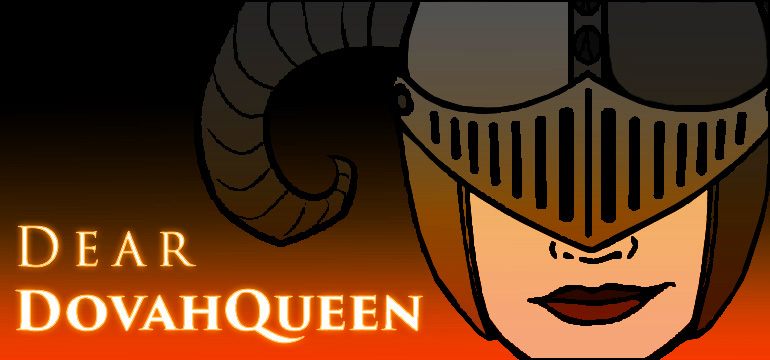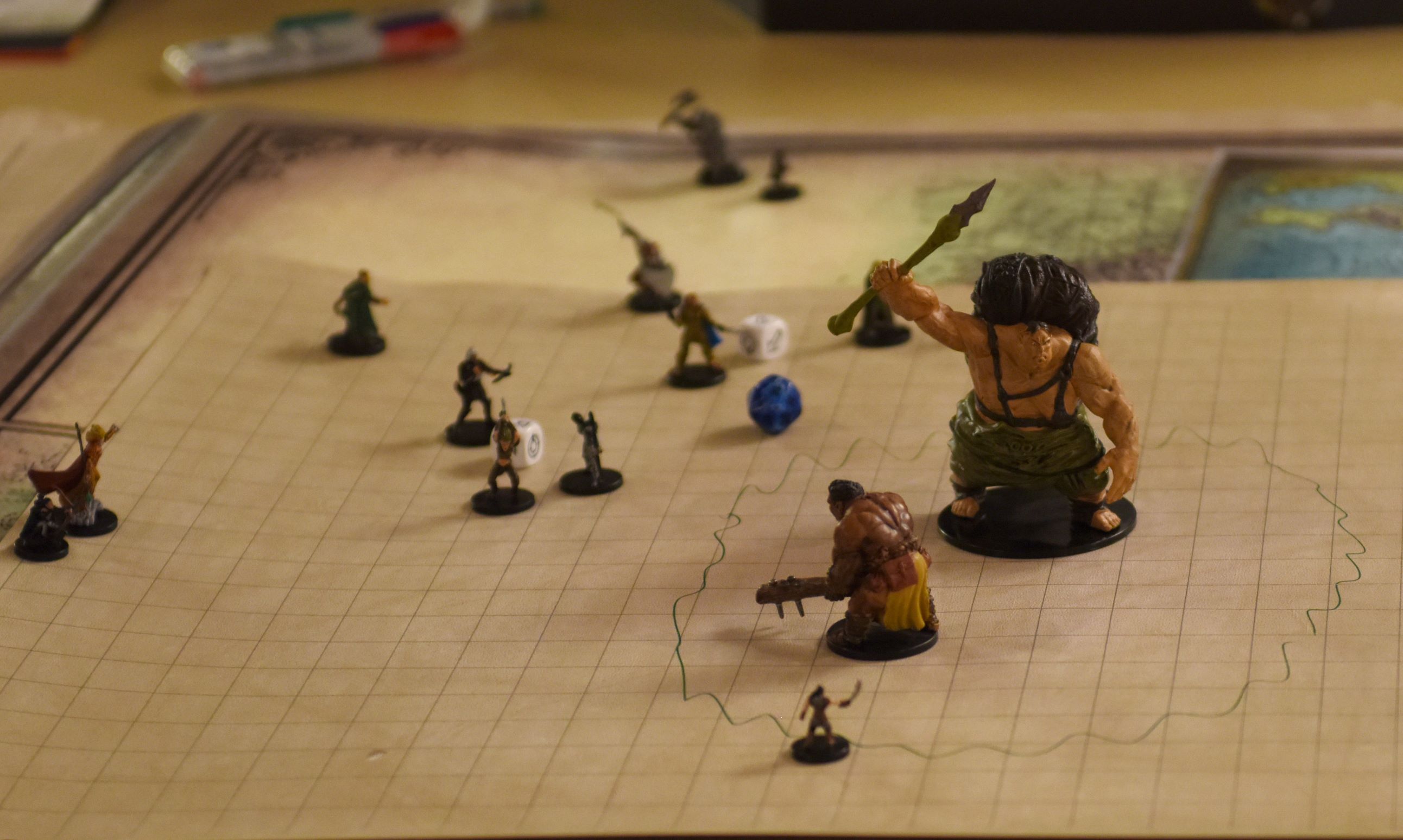Side conversations and goofing off are as much a part of the game as pencils and dice, but how does a GM keep the session on track without coming off as a d20 dictator?
Dear DovahQueen: My group of players have family and work commitments and can’t commit to playing long into the night. How do you make sure your players stay on task and have a satisfying conclusive experience when you have a limited time to play each session?—Overscheduled Adventurer
Dear Overscheduler: This really is one of the age-old problems at the game table, and really its no wonder why. Only half of the point of making a character and getting to throw dice is in the actual game. The rest of the reason we invade basements with chips and soda is for the social experience of spending time with friends while you act a fool together. For that reason, it’s pretty understandable when all of the side conversations and shenanigans derail an entire session. Just because it’s understandable doesn’t mean it’s the perfect way to go about things. You really have two ways you could look at this, and I wouldn’t recommend finding a middle ground between the two. Either you run games and stories that are pretty lighthearted and causal, thus giving you some leeway when the tomfoolery takes center stage–it’s ok as long as everyone is having a good time, right? The other table you can run is the focused table, and I suspect that’s what you’re looking for. Here, you’re gonna wanna have a plan right out of the gate; you need to know where you want to take them per session and how you’re gonna keep them focused.
Having a plan for each session is relatively straight-forward, and I don’t think you’ll have any trouble with this. Know which NPCs you want them to meet, which scenes you want them to experience, and which plot points you want them to hit before the end of the night. While making these plans, always be a little be conservative because side-distractions are pretty much guaranteed. Having a plan like this is often criticized for “railroading” the party, but it doesn’t have to work that way. One recommendation I give to GMs who want to run a strong story without being accused of not giving the party options is to plan your story without plot points around the intentions of the NPCs rather than the actions of the party. Know that the bandit chieftain and her raiders of woods are going to infiltrate the city and hold the mayor hostage on Sunday. You can give your players a reason to be in the area to experience the coop, but if they take the bait, let it still happen. Let news spread of the event, let bounty notices go out, and maybe force the players to experience a formerly familiar town now being under new management. It might not be the plot progression you had planned, but it’s still plot progression, and it could be considered a direct result of the player’s dawdling.
If you have a plan for any semblance of how you need your story to go, you’re still gonna have to have a plan to deal with players wasting precious game time. As a GM, storytelling and rules-management are your second and third responsibility respectively. Your number one position at the game table is as the babysitter of your party. There’s seldom any way around this; you’re gonna have to manage your players like you’re trying to herd cats. Be aware of situations that are prone to causing distractions and time wastes, and know how you’re going to deal with it. Some of the most common causes of excessive downtime are when you allow players time to handle their own business in town and leisure time at the inn. Now, you can’t simply remove these things; they’re integral to the roleplaying aspect of the game, but you can manage them with Bigby’s Forceful Hand. “Ok, you all have approximately 2 days from today before the caravan leaves. In 3 sentences or less, what do you plan to do in town, Player A?” Do your best to play out their intentions, but remain mindful of the fact that 2-5 other people are waiting for their turn, and that you need to get through this so you can move on. If it’s still taking too long, there’s nothing wrong with asking your players to write down their intentions, and you’ll quickly resolve it during the next break. The number one takeaway: do not be afraid to put your foot down; let your players know in no uncertain terms that they only have a limited time and then you’re going to move on with or without their consent. The same goes for side conversations. When you have time to allow them: no problem. When you don’t, speak over the noise to inform your party that it’s time to move on.
Know what kind of game you want to run, know what kind of time you want to run it in, and do not hesitate to let your players know when its time to move on. There’s a certain art to being the boss without sounding bossy, and that’s just something you’re gonna have to come up with your own method for. I attempt to not sound like a gaming fascist and still maintain control of the situation by using a casual “Hey listen cmon” and wearing my best mischievous smirk in the process. That’s something you’re just gonna have to develop based on your own personality. There’s a fine line between players having no fun cause the game is out of control and players having no fun because you’re too controlling but it is a line you gotta walk, and I hope this helps you find your balance.
You can request RPG advice or send your questions by email to deardovahqueen@gmail.com or on Facebook.






